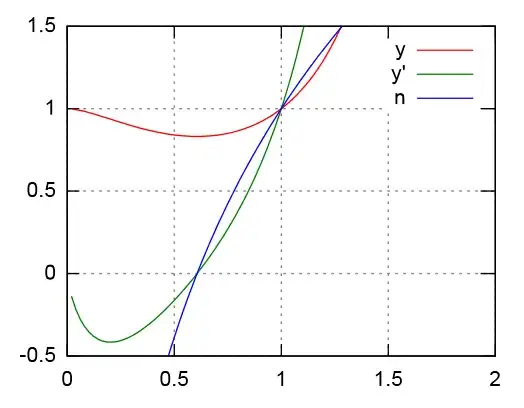I also first try to express the exponentiation in $y = x^{x^2}$ with the exponential function, because I can remember the derivation rules here better. :-)
Taking the natural logarithm both sides of the equation, we get $\ln y = x^2 \ln x$ and then inverting it again, we have $y = e^{x^2 \ln x}$. That is how far you got.
Now we use the chain rule:
$y' = e^{x^2 \ln x} \left(x^2 \ln x\right)'$ and then
$y' = e^{x^2 \ln x} \left(2 x \ln x + x^2 \frac{1}{x} \right)$ which gives
$y' = x^{x^2} \left(2 x \ln x + x \right)$ and finally
$y' = x^{x^2 + 1} \left(2 \ln x + 1 \right)$.
This is similiar to the answer by user T. Bongers, if you resubstitute $y = x^{x^2}$ in his answer and do a bit of combining the terms.
Using the übercool JavaScript port of Gnuplot at http://gnuplot.respawned.com/, where I paste
set terminal svg enhanced size 400,300
set output 'out.svg'
set grid
plot [0:2][-0.5:1.5] exp(x*x*log(x)) title "y", exp((x*x+1) * log(x)) \
* (2 * log(x) + 1) title "y'", 2 * log(x) + 1 title "n"
I get this nice graph:

If you read until here I thank you. For me it was my first post here and i am amazed about the expressive features (formulas, graphs) here.
